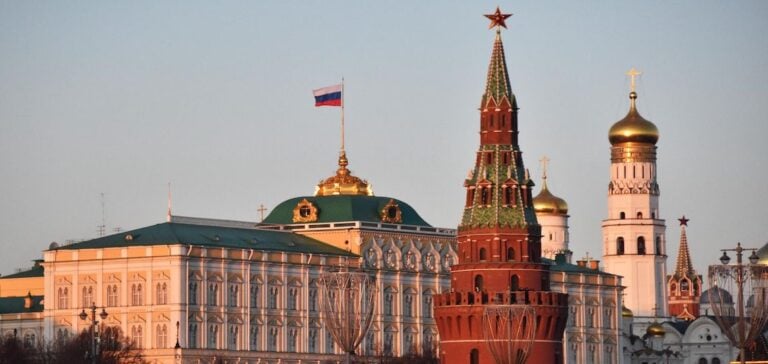The U.S. imposes new sanctions on a number of Russian oil service companies and senior Energy Ministry officials, as the Biden administration ramps up pressure on Moscow over the war in Ukraine.
The noose is tightening: Russian energy ambitions curbed by US sanctions
The U.S. State Department says these sanctions are aimed at reducing Russia’s ability to expand its oil and gas production and exports. Several Russian mining and technology companies, as well as banks, have also been placed under sanctions, effectively blocking their access to the international dollar banking system.
Secretary of State Anthony Blinken says: “These sanctions will limit Russia’s access to critical materials, hinder its future energy production and export capabilities, restrict its use of the international financial system, and crack down on those complicit in violating and circumventing sanctions.”
Bypassing sanctions: Russia finds outlets in Asia
Sanctions previously imposed by the US and European powers have already cut off Russia’s access to Western markets and restricted the ability of traders and carriers to carry out oil transactions with Russia. However, Moscow is finding buyers for its discounted barrels in China and India. The latest sanctions are aimed at hindering Russia’s exploration and production (E&P) capabilities.
Among the companies sanctioned are several Russian companies that provide engineering, technology, drilling and marine services for upstream operations, such as Nipigaz and Siberian Service Co.
Targeted sanctions: Russian companies and senior officials hit hardest
The US State Department is also placing Sakhalin Shipping Co. and many of its vessels under sanctions, claiming that the company is involved in delivering construction materials and equipment to drilling sites and expanding Russia’s trade routes into new jurisdictions as the Russian Federation seeks to bridge economic connections lost due to the invasion of Ukraine.
Among the officials sanctioned are two senior officials from the Russian Energy Ministry: Pavel Sorokin and Pavel Snikkars, both deputy ministers. Sorokin’s role in Russia’s OPEC+ affairs is essential, as he assists Russian Deputy Prime Minister Alexander Novak – who had previously been placed under US sanctions – at meetings with OPEC+ counterparts.
Tensions within OPEC+: The consequences of sanctions on the international oil alliance
Russia has been allied with OPEC and several other major oil producers since 2017 to implement a series of production cuts to support prices. More recently, in March, Russia said it would cut production by 500,000 barrels a day from February levels in retaliation for Western sanctions, and in June confirmed its commitment to reduce crude exports by a further 500,000 barrels a day in August.
An OPEC+ monitoring committee, co-chaired by Saudi Arabia and Russia, meets online on August 4 to review market conditions. The full OPEC+ alliance meets in person in Vienna on November 26. So far, the sanctions imposed on Novak have not prevented him from attending OPEC+ meetings in the Austrian capital.
Energy geopolitics: the global impact of sanctions against Russia
The new sanctions are part of ongoing US efforts to pressure Russia in response to its invasion of Ukraine, and to limit its influence in the energy sector. The restrictions imposed on Russian oil companies and energy ministry officials are designed to disrupt the country’s exploration and production activities and curb its ability to increase its presence on the world’s oil and gas markets.
The effectiveness of these new sanctions is being closely scrutinized by the international community, while Russia is probably seeking to circumvent the restrictions and maintain its energy activities thanks to its trading partners in Asia. The conflict between countries’ geopolitical and economic interests continues to weigh heavily on international relations, and could have major repercussions on the global economy.






















